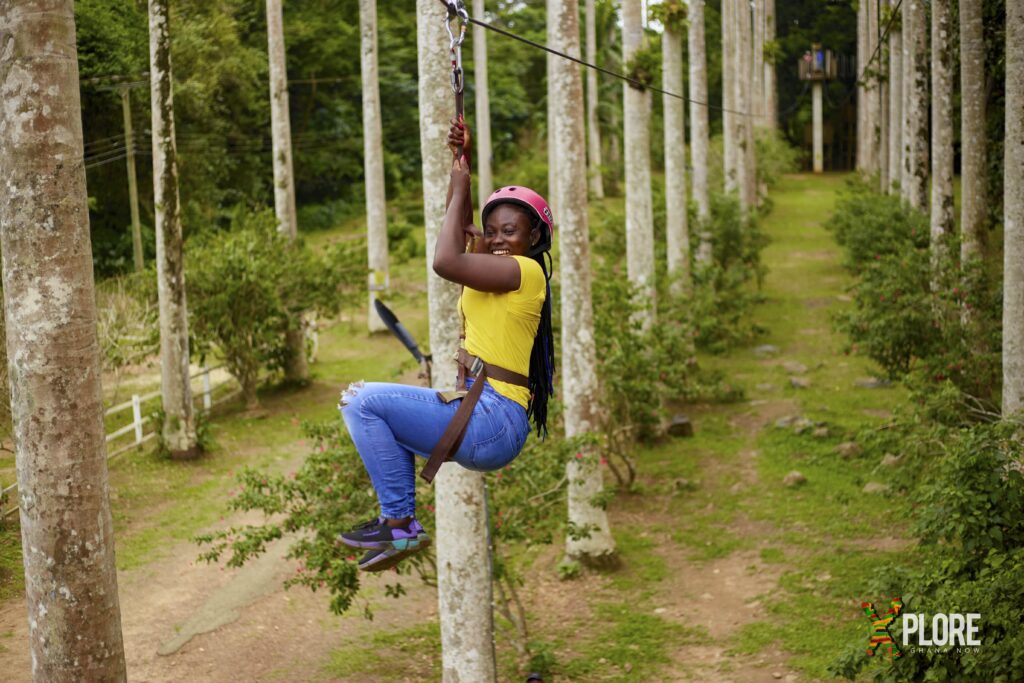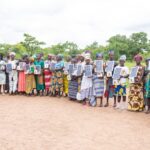Bunso Eco Park, nestled in the Abuakwa South Municipality of the Eastern region of Ghana, is a prime destination for eco-tourism enthusiasts, adventure seekers, and those seeking a tranquil retreat. Boasting over 600 species of trees, with numerous applications in traditional medicine, Bunso offers a unique blend of semi-deciduous native forest and specially introduced species, cultivated by the Plant Genetic Resources Centre of Bunso for research purposes.
Visitors can immerse themselves in the diverse natural surroundings, which host more than 110 species of birds, 30 species of butterflies, and a rich herb garden featuring over 40 varieties. Guided tours of the arboretum provide insights into both indigenous and exotic plants, delving into their medicinal properties and traditional healing applications. For a taste of local life, a village tour offers a firsthand look at cocoa farming and village traditions.
Activities at Bunso Eco Park include
- Tree-Top Canopy Walkway: Experience the thrill of traversing the forest canopy on elevated ropes, offering a spectacular view of the diverse tree species. This canopy walkway stands as the second-highest in the world, following the renowned Kakum.
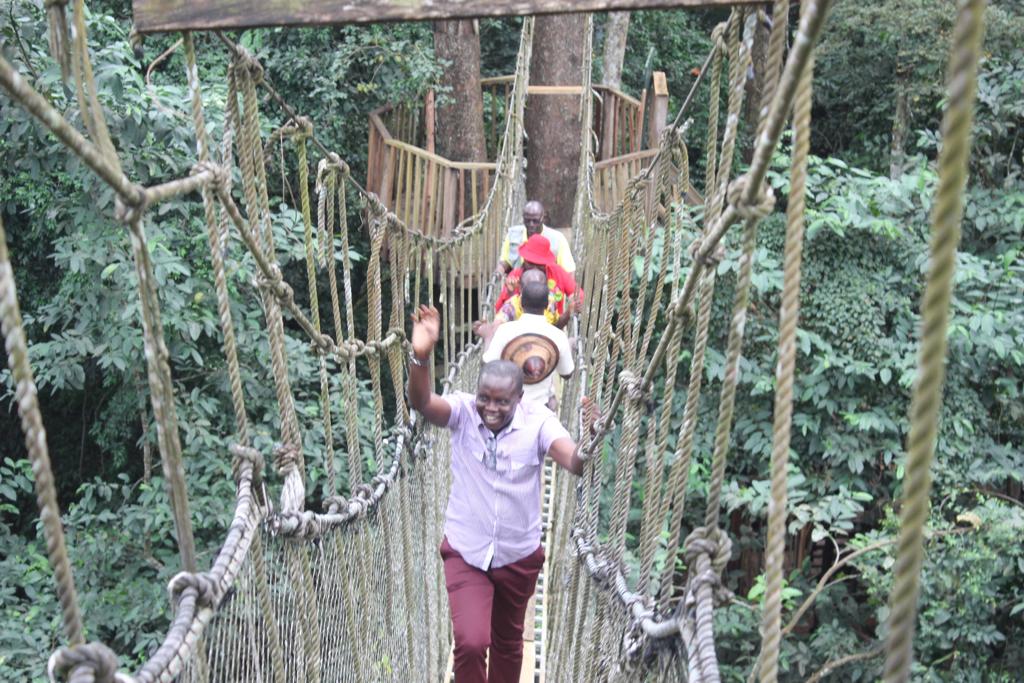
2. Children’s Playground/Walkway: Tailored for young adventurers, this child-friendly park features a purpose-built canopy walkway, ensuring that children partake in the excitement.
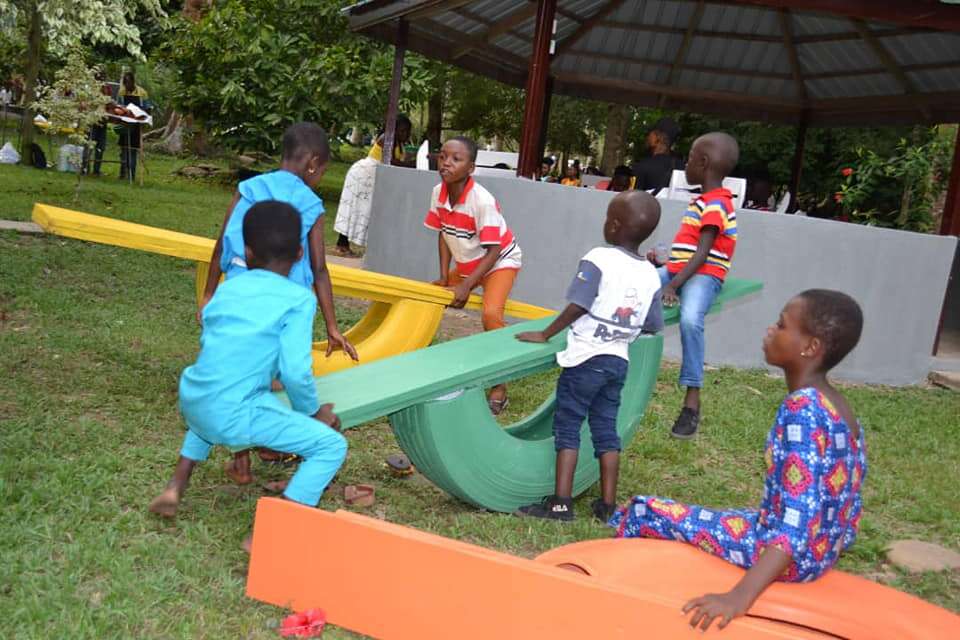
3. Butterfly/Bird Sanctuary: A leisurely stroll through the forest unveils an array of butterflies and occasional bird species. The best time for butterfly sightings is typically before 8 am.
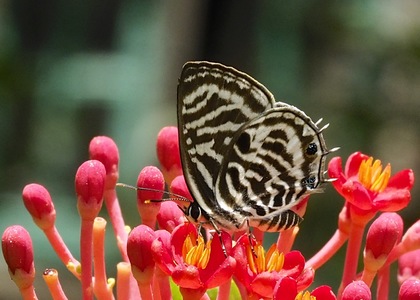
4. Horse-Riding: A recent addition to the park, two horses provide visitors with the opportunity to explore the park on horseback.
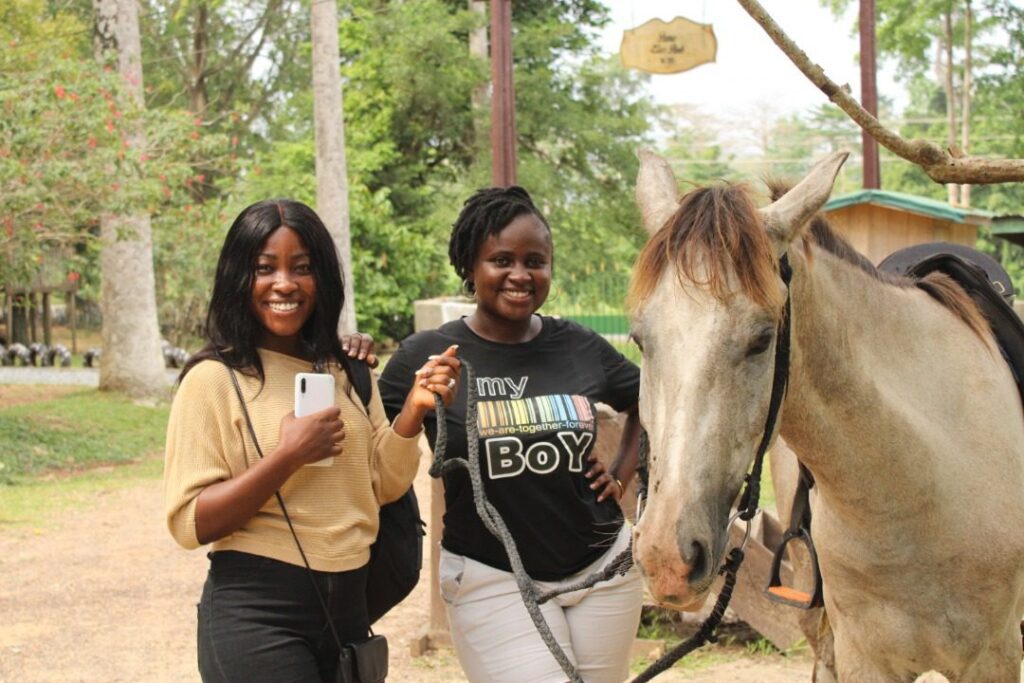
5. Zipline Adventure: Pump up the adrenaline with a thrilling ride down the newly constructed 50-meter zipline. What sets this zipline apart is its entry and exit via a suspended ropes walkway.
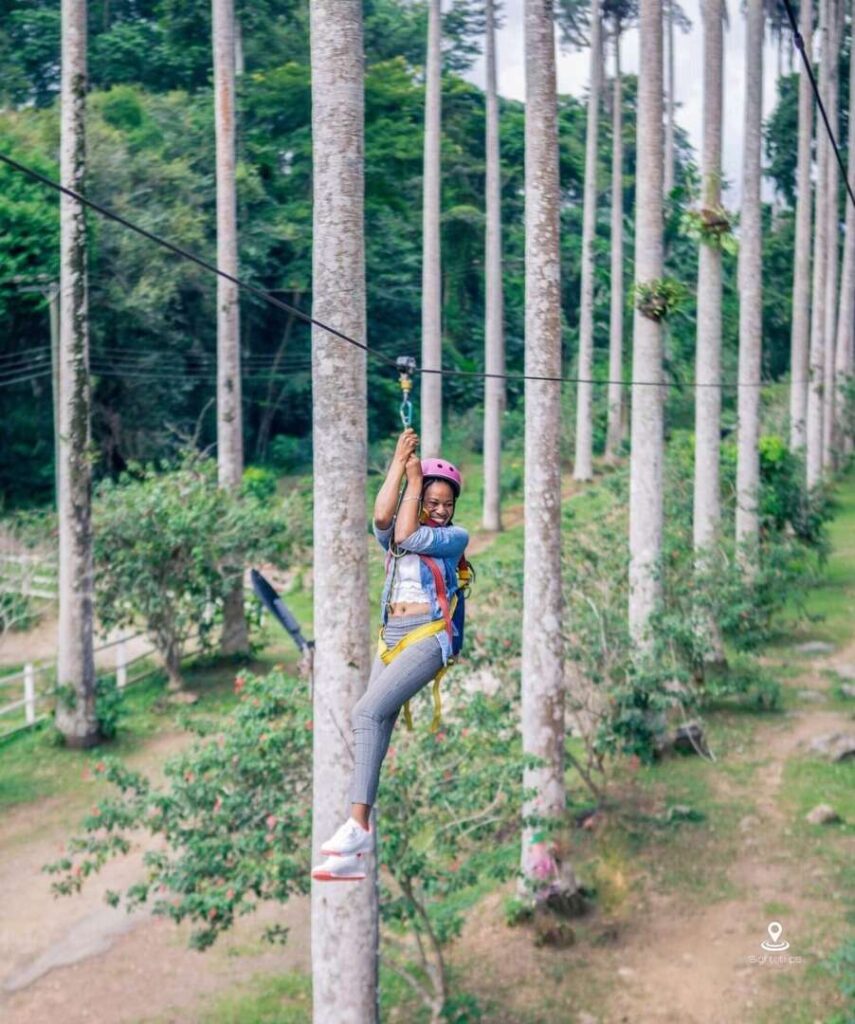
To reach Bunso Eco Park, head to Bunso in the Eastern Region, merely 4.1 kilometers from Bunso junction (Linda Dor) on the Accra-Kumasi Road.
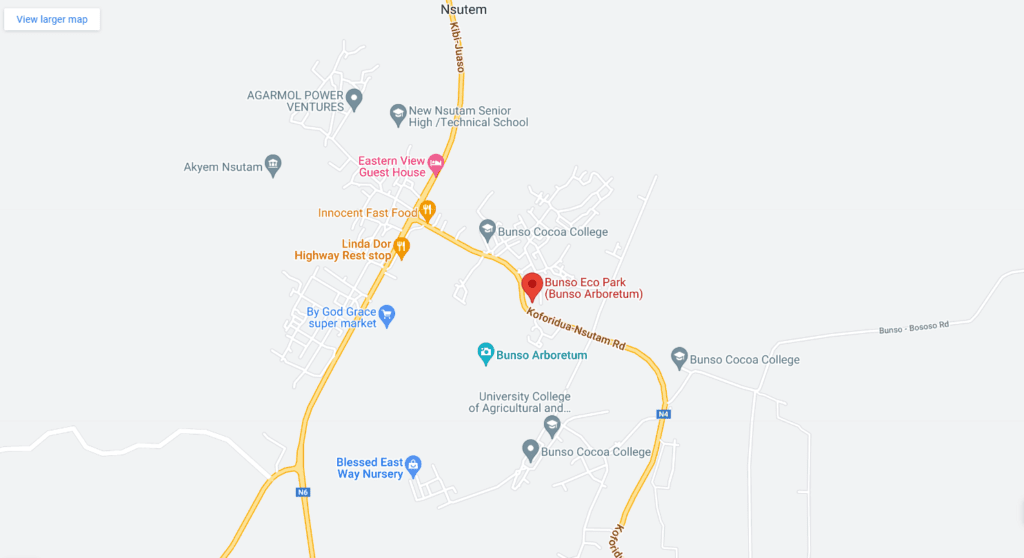
History
The 40-acre forest reserve that hosts the Aboretum which belongs to the Akyem Abuakwa Traditional Council who leased it to a mining firm in the early twentieth century for surface mining but later given to another company known as African Products Department for rubber and cocoa plantations in 1917.
After the company left, two British bought the park on which they built a guest house in 1935. The guesthouse is currently serving as the official residence for the Vice Chancellor of the University College of Agriculture and Environmental Studies; an institution established by the Okyehene, Amoatia Ofori Opanin II.
In 1946, the facility was then acquired by the Plant Genetic Resource and Research Institute of the Council for Scientific and Industrial Research (CSIR) which has been managing it ever since.
The forest reserve has some of the rare tree species including Garcinia Kola, known locally as Twepea, reputed for its health benefits. Garcinia kola is said to be used in many tropical countries to fight infectious diseases and also known to possess anti-inflammatory, antimicrobial and antiviral properties.
Other tropical tree species found at the centre include Okure, mostly used for dugout canoes as well as the Alpha and Omega trees used for the local sponge (sapowie).


